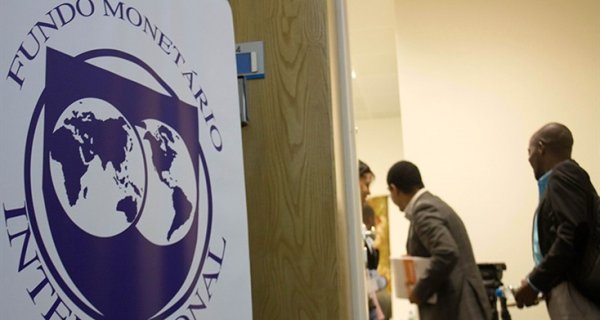"Public debt is expected to increase from 107 per cent of GDP in 2019 to 134 per cent in 2020; projections for 2020 mainly reflect the depreciation of the exchange rate and the fall in oil prices following the shock triggered by the pandemic of 19 ", write IMF employees in the report that details the analysis of the fourth review of the financial adjustment program.
According to the document released in Washington, "public debt is expected to fall to 120 percent of GDP this year, reflecting the beginning of the recovery in growth and a restrictive fiscal outlook", which compares with the 107.5 percent forecast in September.
The public debt-to-GDP ratio "is expected to remain high over the projection horizon and will take slightly longer than previously projected to converge to the 60 percent medium-term anchor", which is now expected to be achieved only in 2028 .
Even so, the IMF insists, following the argument presented in the interview to Lusa, on Monday, the public debt "remains sustainable, even if subject to very high risks".
This degradation of forecasts is accompanied by a sharp reduction in the forecast of economic growth, which, despite coming out of the recession this year, will grow only 0.4 percent, which compares with the 3.2 percent forecast in September, in third review of the economic adjustment program.
"The sustained recovery of growth, based on structural reforms that unlock the main obstacles to growth in Angola, such as the strengthening of the business climate and governance, will complement the fiscal consolidation that is in our base scenario and reduce the debt substantially in 2025" , add IMF experts.
Throughout the text, the IMF leaves several praise for the fulfillment of the program and for the authorities' commitment to following the 'script' of economic policies and structural reforms, but warns that the risks are high due to the strong dependence not only on the oil sector, but also from external shocks.
"Despite improving, the outlook for economic evolution remains highly challenging, due to the slow and uncertain recovery from shocks related to covid-19", they say, arguing that "being an economy highly dependent on oil, it suffered from weaknesses in this sector , such as the fall in production and a partial recovery in international prices recently ".
These shocks "led to a fifth year followed by recession and difficulties", marked by the rise in the debt to GDP ratio to "very high levels", motivated by the recent depreciation of the exchange rate.
"Still, strong fiscal performance and active debt management are paving the way for a gradual economic recovery and a reduction in debt-related vulnerabilities," say technicians who met virtually with authorities in early December.
The program's performance, they say, "has been adequate since the third review, all indications until September have been met, with the exception of two, the central bank's assets over the central government, and the volume of public debt".
Angola missed some of the agreed targets and indicators, namely with regard to the financial sector and the provision of the central bank, but presented arguments considered valid by the IMF technical team.
Regarding the risks of executing the program that ends at the end of the year, the Fund considers that there are "significant risks", mainly with regard to the level of public debt, oil prices and the fragile economic environment.
However, they state that "to deal with these risks, the authorities kept the program on track, namely by presenting a prudent 2021 Budget, implementing an effective debt management strategy, allowing the exchange rate to adjust to shocks, pursuing a sound monetary policy and continuing progress on reforms to important structures ".
Angola has been under technical and financial assistance from the IMF since the end of 2018, and will receive US $ 4.5 billion by the end of the year to deal with difficulties and relaunch the economy, in addition to technical advice on the definition of economic policies.







